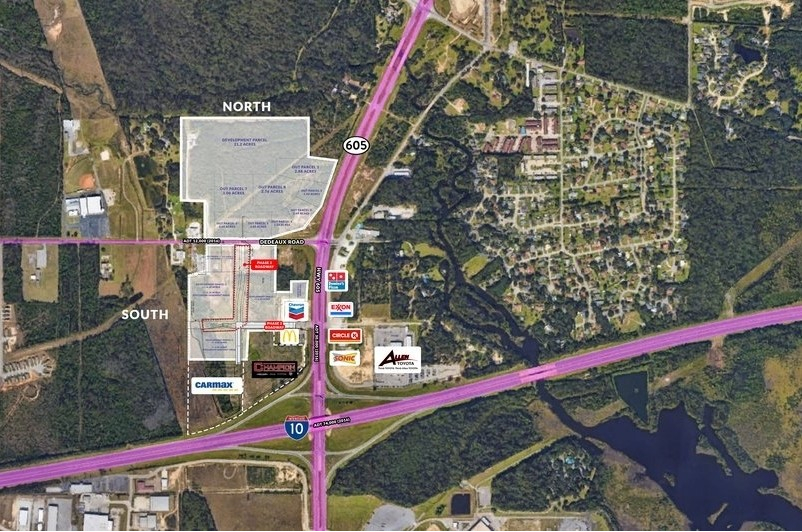Stepping Stones to Get Started on The Real Estate Developer Path
Within the lucrative landscape of real estate, there’s “more than one way to skin a cat”, which means that being a real estate agent is by no means the only way to build out a successful business.
Let’s ask yourself some questions: Are you fascinated by the idea of developing real estate every inch from the ground up? Are you passionate about the process of buying and selling properties? Have you had several years of real estate experience under your belt, and wish to take your career to the next level? Should your answer be ‘yes’, congratulate – you might be an excellent candidate for becoming a real estate developer.
But, which specific tasks are a real estate developer expected to assume? And, which are the fundamental steps to grow yourself an adept real estate developer? Let’s read on to discover!
Real Estate Developer: An Overview
1. What Does a Real Estate Developer Do?
To put it simply, real estate developers are entrepreneurs who oversee the development and redevelopment of properties. Most real estate developers work on commercial real estate projects, which include retail spaces, office and residential buildings, as well as travel and leisure developments.
In practice, the exact ins and outs of what a real estate developer does will vary project by project. Nevertheless, essentially, real estate developers will take charge of planning, financing, and executing real estate projects. Whereas you may not be directly on-site putting up drywall or drafting floorplans, you are the brain of the operation and are responsible for ascertaining that all its parts move effectively toward the end goal.
If you’re still wondering what becoming a real estate developer would be like, you can compare the profession to the role of a project manager. Just like a project manager, developers oversee projects from start to finish, drive major decisions as well as recruit and manage professionals to execute project plans. Let’s cast a glimpse over the below phases to clearly define the main scope of a real estate developer:
Planning
Over the first phase, a real estate developer assumes the responsibility of scouting land or locating the property. Whether you are working on new building projects or renovating an existing property, architectural plans will need to be drafted up. Plus, all the essential permits have to be secured so that the project can move forward without a hitch.
Financing
In the financing phase, a real estate developer will be in charge of locking down some funding. You may be putting in your business’ running funds or drum up support and search for funding from other sources, typically real estate investors. These investors might be within their professional network or even total strangers. Of course, a sound contract shall be drafted up with some fundamental legal scaffolding that protects everyone’s interests.
Execution
Once the planning has been done and the financing locked down, your real estate project will move forward. When it comes to the execution phase, contracts have to be set up with the construction crews, which can become a tricky enterprise on larger building projects, especially with diverse teams. More often than not, this emerges as the most challenging part of real estate development, and also the part that puts a project behind schedule. Thus, it’s understandable why the best real estate developers are usually competent on-the-ground managers.
By and large, pursuing the path of becoming a real estate developer means that you have to get used to constant chaos. That being said, for those who don’t wish a typical desk job, facing new situations and challenges on a daily basis can be thrilling. Given that, let’s take a closer look over the daily responsibilities of a real estate developer:
- Troubleshooting
- Visiting land plots and properties
- Balancing the books
- Meeting with workers, contractors, and investors
- Responding to press outlets and local organizations
- Scheduling and time management
- Ensure that buildings and properties are up to code
- Researching new projects
2. What Experience Do You Need for Real Estate Development?
Whilst there is no single path to becoming a real estate developer, certain areas of expertise tend to funnel into the profession. Actually, construction, architecture, law, finance, urban planning, and established real estate professionals can all step in the world of real estate development with the proper knowledge and adequate preparation.
Furthermore, it’s of utmost significance to obtain a real estate license. The ability to plan and organize projects, general knowledge of real estate, and more importantly, a strong entrepreneurial mindset are all critical “property” to make an outstanding real estate developer.
3. What Are the Different Career Paths Within Real Estate Development?
Generally, jobs in the field of real estate development are tiered based on experience. Some entry-level positions may include:
- Real estate sales associate
- Architectural designer
- Asset management specialist
- Developer Analyst
Middle tier positions may include:
- Project manager
- Real estate analyst
- Real estate broker
- Senior consultant
And finally, top-level, or executive, positions will include:
- Principal product manager
- Senior investment analyst
- Chief Risk Officer
- Director, strategic accounts
There are many different career opportunities that fall under the real estate developer umbrella. Find a niche within real estate development, talk to people who work in that field, and pursue a fitting path once you’ve explored your options.
4. What Is the Potential Return of Being A Real Estate Developer?
After all, real estate professionals are often attracted to the development profession due to the complexity of projects, as well as the potential for earning high returns. Since real estate developers typically take the highest risk in any given project, it’s understandable that they typically receive the highest reward.
The size and scope of the development project influence pay, as does geographic region, residential versus commercial projects, and the state of the real estate and land market. If involved in a project with a big price tag, a real estate developer can make millions of dollars – yet, bear in mind that your specific offer is highly dependent on the market and success of each individual project.
5. Do Real Estate Developers Need A Large Amount of Cash To “Get Rolling”?
This question turns out to be one of the most common concerns among those who wish to enter into such field!
The answer is “yes” – you do need capital to get into real estate development, but fortunately, you don’t have to have it yourself. In fact, the majority of real estate developers finance projects with an investor, personal or bank loan. Should you have never received financing for a real estate project before, you’ll most likely need to work on forming a solid business plan to present to investors or lenders. In case you’re taking out a business loan, be 200% sure that you “shop around” to thoroughly compare interest rates so that you can enjoy the best deal.

Stepping Stones To Get Started on The Real Estate Developer Path
Have you made up your mind to become a professional real estate developer? Once you’ve made this call, it’s time to start asking “How can I become a real estate developer?” Whereas such a process is a long and complicated one, below are some critical stepping stones to simplify your future path.
Step #1: Start off with Sound Educational Background
How to Become a Real Estate Developer with a Degree?
Beyond any doubt, several successful real estate developers have gone through a formal education to reach where they are in their real estate career. Although this may sound somehow complicated, there is every possibility that you already get a degree suitable for real estate development.
Actually, real estate development revolves around a bunch of general skills that various degrees can provide. For instance, a bachelor degree in economics or business administration will walk through some crucial problem-solving skills that every single real estate developer needs when they come up against issues. A civil engineering degree can also provide comprehensive expertise covering the building process of real estate development.
How to Become A Real Estate Developer Without A Degree?
Of course, it’s great to have a formal educational foundation – but, to become a real estate developer, luckily, you don’t necessarily need a degree. The best approach to the profession of real estate development without a degree is to start in another field of real estate investing. Whether you choose to become a real estate investor with a few investment properties or a licensed real estate agent, you will gain precious industry-specific expertise and experience about the real estate market – things that all successful real estate developers rely on every day.
Step #2: Establish and Then Expand A Real Estate Network
One of the main responsibilities of a real estate developer is the recruiting, hiring, and management of professionals from across a variety of fields. Architects, asset managers, general contractors, engineers, and appraisers are examples of the wide array of talent required to successfully accomplish a development project. Managing to establish a strong and wide network of such professionals will make your job much easier, as it does allow you to seek advice from and hire colleagues that you can trust.
When taking courses learning from other successful real estate developers or occasionally attending industry-wide events, do your best to form relationships and socialize in order to build a real estate network – let’s try implementing some of these tried and true networking tips from leading real estate experts!
Step #3: Join a Real Estate Development Firm
Once you have a degree or have gotten your foot in the door of real estate investing, it is high time to take part in a real estate development firm. Should you have obtained a degree, then consider proper entry-level positions. Should you have chosen the path of becoming a real estate investor or agent first, it will possibly take some time to build a track record in order to convince a real estate development firm to hire you. After a few successful investment properties, apply to a firm, and work your way up.

Step #4: Thrive to Be an Independent Real Estate Developer and Formulate A Trustworthy Team
With the experience you have obtained over time of working in the real estate development firm as well as the real estate investment network you build out, you will be able to become an independent real estate developer and reach your ultimate goal.
Whereas you have acquired prior knowledge of the different aspects, risks as well as obstacles related to real estate development, you cannot do it all yourself.
It’s high time that you formed a well-rounded team with reliable lawyers, contractors, architects, and real estate agents who line up to take your work from start to finish. This is perhaps the most crucial aspect of any successful real estate development process.
Additionally, before officially starting, you’d better off having someone on board who can help you navigate capital gains tax strategies. After all, the most outstanding real estate developers are ones who have a great team behind them.
Andrew Greer: Stories Behind an Eminent Real Estate Developer
Before diving into some sharings of his start in the real estate investment world, it’s important to grasp a brief view as to Andrew Thomas Greer, CEO of Thomas Strafford Investments.

While completing his degree in Economics at San Diego State University, Andrew began his career in Finance focusing on private equity from 2009 to 2011. In around early 2011, he directed his focus to becoming the asset manager vs salesman. Starting in 2011 Andrew and Keith – now the CFO of Thomas Strafford Investments – joined forces buying assets that were below the highest and best and re-positioning them for disposition.
With a desire to grow into larger assets, Andrew began putting his energy towards zoning and city planning to create the best opportunities for the company and its investors to build value. The partners in Thomas Strafford have since completed several entitlement sub-divisions, including one of the first small lot subdivisions, and built homes and multi-units in San Diego County.
Undoubtedly, Andrew Greer has well accomplished his initial desires and made flying success within such a challenging field. But how did he make it, especially to handle all the hurdles when jumping into the real estate development game? In the podcast of Founders Club, he shared some inside tips on how to become a real estate property developer.
Starting his sharing, Andrew did stress, “Development is always based on the land, so the most important thing when you go into a process is determining what the land is that you’re investing in, and looking at what’s available to be done on that land.” Then, he went on revealing his advice for starting, which can be summarized as follows:
- Building relationships with key city personnel
- Learning how to go from land to approval to construction
- Knowing which changes you could make to help you get approved and get bonuses from the city
In practice, there exist lengthy and complicated operating procedures when starting a real estate development business. Among these steps, Andrew particularly shared about his actual process of getting the permit for the project. “You got through a process where you turn in the construction docs and they go into what’s called review cycles. You turn in all your sets of plans, they get routed to all the different departments, and this is something that I didn’t understand until I did it …”
Speaking of the documents required for obtaining a real estate development permit, he hilariously shared. “We gave them 12 sets of docs for our project. It was like $1300 in printing, full-size plans, every single thing, studies, reports, all that information. You work with your consultants, obviously, to generate it, turn that in, it gets routed to all those departments.”
Then, he went on explaining,” They have 30 days to respond, and then you get back a letter with all the questions about your plans on it. Everything that’s redlined, everything that comes back. What happens after that, is you get your comments back from all those departments, and it’s really overwhelming the first time. My first set of comments on a development and this was a small house subdivision, 48 pages. And it’s bullet points of everything they want you to answer.”
48 pages of comments seemed to be somehow overwhelmed to handle, especially with first-time real estate developer, but Andrew shared that …
“It’s relatively common, because there’s lots of requests mixed in there. At the same time, there’s changes, and then there’s, what they call, significant issues or information, so they write you a six-page letter, basically, at the beginning, kind of summarizing all the issues. But then your issue could be as simple as, Need to see door frame height, or it could be, significant issue, historical significant issue: you have issues with your drainage, and then you have to go through and go back through that process and start going over it, and get them back in.”

Usually, or at least in case of Andrew, such a whole process can take staggeringly 12 months, maybe 18 months. “You have the cycles, where it’s in for review, then you get it back and you have to go through all your consultants and get everyone lined up and get it all back in again. So, you could spend two months answering all the questions before you go back in. As it gets to the end, and the comment becomes fewer and fewer and fewer, it goes a lot quicker, but early on, you could have some major design questions, major layout questions that you have to answer that affect the rest of the project.”
Anyway, obtaining a project permit is just one aspect of real estate development jobs – there are other tons of burdens waiting to be addressed. The complexity of this particular task can, itself, speak a lot about the huge challenges possibly faced by real estate developers. That being said, to yield big rewards, preparations and efforts have to be made – continuously and tremendously. Should you decide to step in the real estate development game, then consider the stories Andrew shared and make sure you’re ready to tackle all of them, or even more!
The Bottom Line
Real estate development is by no means a straightforward profession. Any opportunity to earn lucrative profits is counterbalanced by the presence of risks and challenges – and becoming a real estate developer is no exception!
Whereas this career path is somehow challenging to tap into, your success chance is always open as long as you’re well equipped with essential intellectual preparation and expertise. As in any profession, the success of one project is your audition for the next. It’s a great idea to start small, learn from developing real estate for the first time, and go bigger once you fully understand the career principles.









